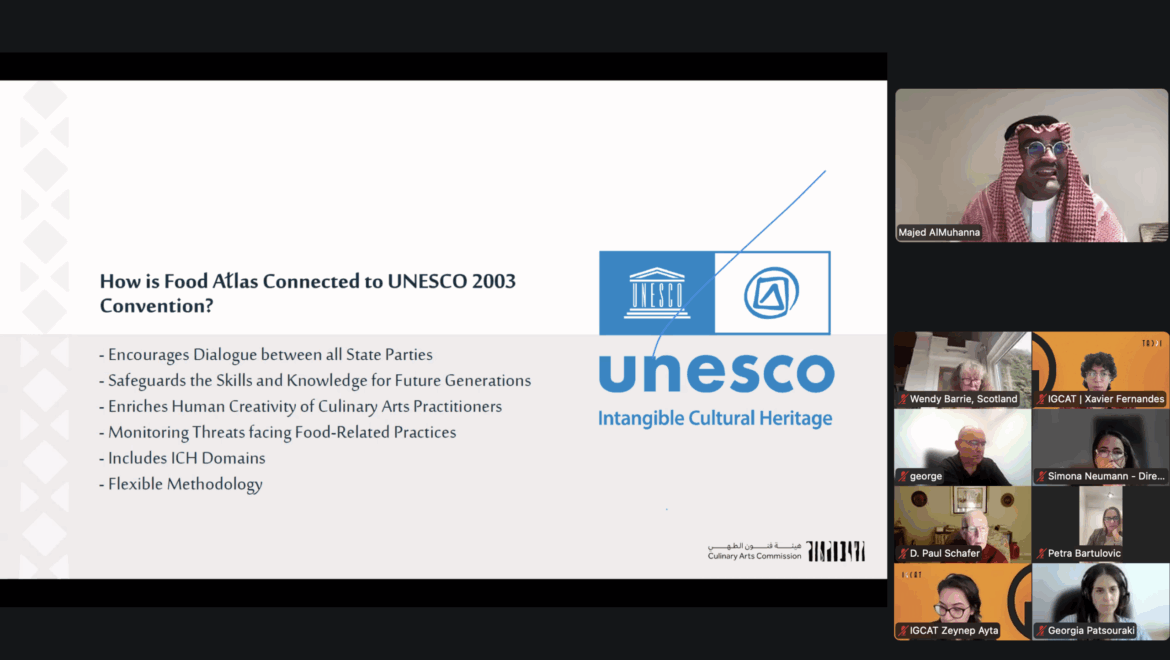IGCAT recently hosted the “International Food Atlas” webinar, presenting an ambitious global initiative to document, safeguard, and transmit foodways as living heritage. The session was organised by IGCAT and led by IGCAT Expert, Majed AlMuhanna from the Culinary Arts Commission of Saudi Arabia’s Ministry of Culture and representative of Aseer, World Region of Gastronomy 2024.
Majed AlMuhanna presented the International Food Atlas as the first UNESCO-supported digital platform dedicated to safeguarding living food heritage. Unlike other food atlases that primarily focus on agriculture or nutrition, this initiative adopts a cultural and human-centred perspective, viewing food as a medium for transmitting identity, memory, and knowledge across generations.
The presentation highlighted how the Atlas connects culinary practices with UNESCO World Heritage Sites and Intangible Cultural Heritage Programmes, recognising traditional know-how, social value, artisanal and safe-guarding practices.
Currently in its pilot implementation phase, the project involves selected regions worldwide to test its submission and evaluation framework. Its next phase will evolve into an open-access global platform, enabling countries and regions to contribute directly to a shared repository of food-related heritage.
A rich exchange followed the presentation, with contributions from IGCAT experts and representatives and gastronomy professionals from around the world, including Robert Oliver (Pacific), Wendy Barrie (Scotland), D. Paul Schafer (Canada), and Ramon Sentmartí (Catalonia), who raised thoughtful questions about intellectual property management, safeguarding endangered food practices, and holistic approaches to cultural preservation. These reflections emphasised the need to protect not only recipes, but also the local ingredients, preparation techniques, and community values that underpin them.
The webinar reaffirmed the importance of integrating gastronomy, culture, and sustainability under a unified heritage framework. By allowing regions to define and protect their own food knowledge systems, the International Food Atlas promotes both global collaboration and local cultural agency.
IGCAT extends its sincere thanks to Majed AlMuhanna, the Culinary Arts Commission, and all participants who contributed to this inspiring and forward-thinking dialogue. Together, we continue working towards a future where food heritage is not only preserved but celebrated as a living expression of cultural identity.

